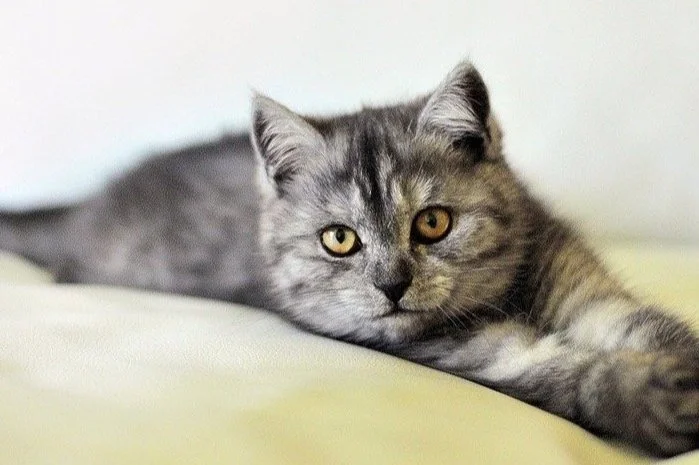Pet Blog > Feline Infectious Peritonitis (FIP)
Feline Infectious Peritonitis (FIP)
Feline infectious peritonitis (FIP) is a viral disease that affects cats, particularly those that are younger than two years old. It is caused by a type of virus known as a coronavirus, which is a common cause of upper respiratory infections in cats. FIP can affect various organs in the body, including the liver, spleen, and kidneys. Symptoms of FIP include fever, weight loss, abdominal swelling, and loss of appetite. There is no cure for FIP, and it is often fatal.
Feline infectious peritonitis is caused by a type of virus known as a coronavirus (fortunately NOT Covid-19). This virus is closely related to the virus that causes the common cold in humans. In cats, the virus typically causes mild symptoms such as sneezing, coughing, and watery eyes. However, in some cases, the virus can mutate and cause FIP.
Image source: https://www.mdpi.com/1999-4915/14/3/481
There are two forms of FIP: wet and dry. The wet form is more common and is characterized by the accumulation of fluid in the abdomen or chest. This can cause abdominal swelling and difficulty breathing. The dry form is less common and is characterized by the presence of granulomas, which are clusters of inflammatory cells, in various organs in the body.
Symptoms of FIP can vary depending on the form of the disease and the organs that are affected.
Common symptoms of the wet form of FIP
Fever
Weight loss
Abdominal swelling
Loss of appetite
Cats may also develop jaundice, which is a yellowing of the skin and whites of the eyes.
Common symptoms of the dry form of FIP
Weight loss
Fever
Poor coat condition
Some cats may also develop neurological symptoms such as seizures or behavior changes.
Prevention and Diagnosis
Preventing FIP can be challenging, as there is no vaccine available for the disease. The best way to prevent FIP is to keep cats indoors and avoid exposing them to other cats that may be carrying the virus. It is also important to provide cats with a balanced diet and regular veterinary care, including regular checkups and vaccinations.
Diagnosing FIP can be difficult, as the symptoms can be similar to those of other diseases. A veterinarian will typically perform a physical examination and may also order laboratory tests, such as a complete blood count and biochemical profile, to help diagnose the disease. In some cases, a biopsy may be necessary to confirm the diagnosis.
Treatment for FIP
There is no cure for FIP, and treatment is typically focused on managing the symptoms and improving the cat's quality of life. This may include medications to control fever and inflammation, as well as fluids to help prevent dehydration. In severe cases, hospitalization may be necessary.
Immunomodulatory drugs: These drugs aim to suppress the overactive immune response to the virus that causes FIP. Examples of these drugs include interferon, which may help prolong the cat's life.
Corticosteroids: These drugs may help manage the inflammation associated with FIP, and may also provide some pain relief.
Antiviral drugs: There are no specific antiviral drugs that can treat FIP, but some antiviral drugs such as protease inhibitors and nucleoside analogues may help reduce the viral load and prolong the cat's life.
Surgery: In some cases, FIP may cause the accumulation of fluid in the abdomen or chest. In these cases, surgery may be required to drain the fluid and relieve pressure on the cat's organs.
It's important to note that the prognosis for cats with FIP is generally poor, and treatment may only prolong the cat's life for a limited time. It's also essential to work closely with a veterinarian to manage the cat's symptoms and monitor their condition.
Conclusion
In conclusion, feline infectious peritonitis is a serious and often fatal disease that affects cats. It is caused by a coronavirus, which can mutate and cause the disease. Symptoms of FIP can vary depending on the form of the disease and the organs that are affected. There is no cure for FIP, and treatment is typically focused on managing the symptoms and improving the cat's quality of life. Preventing FIP is the best way to protect cats from the disease, and this can be done by keeping them indoors and providing them with proper nutrition and regular veterinary care.
Check out our other Cat Blog articles
Return to the Pet Blog


